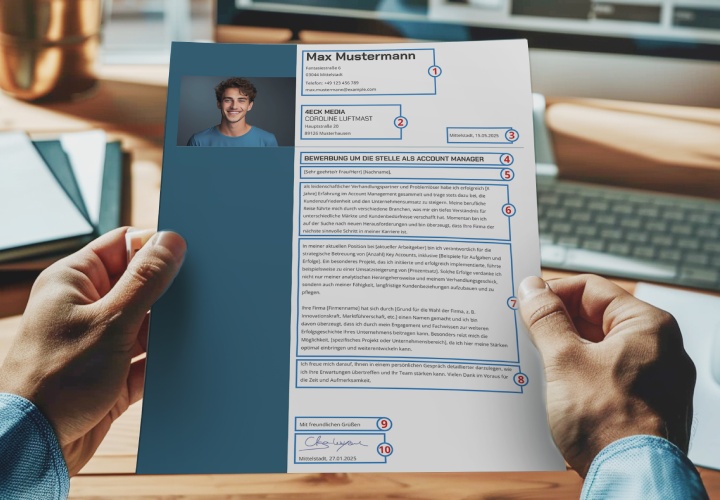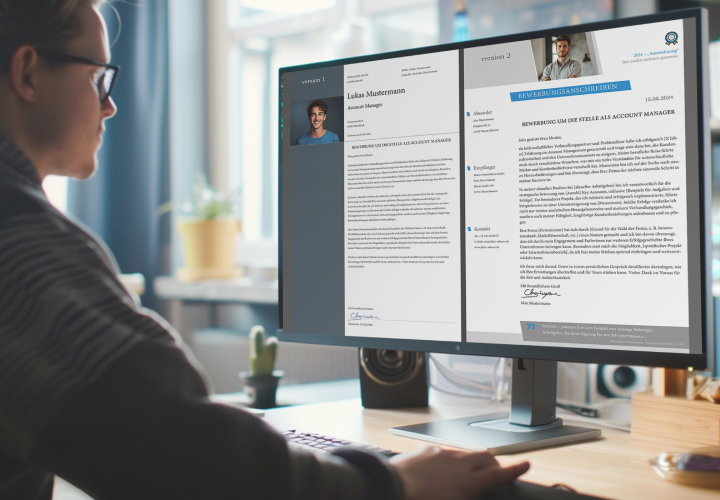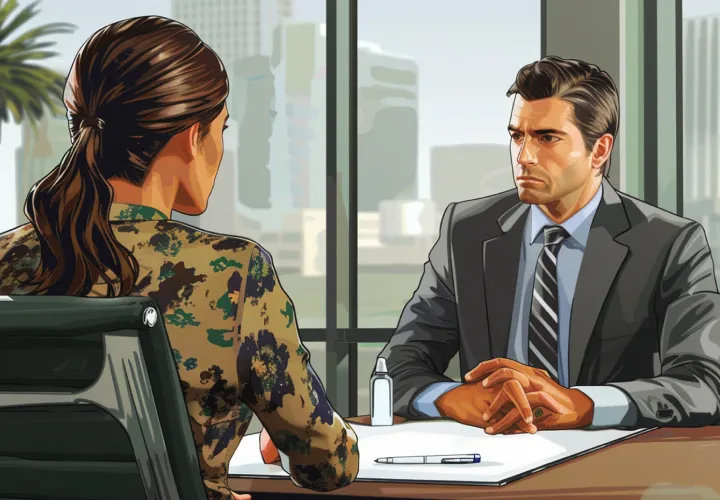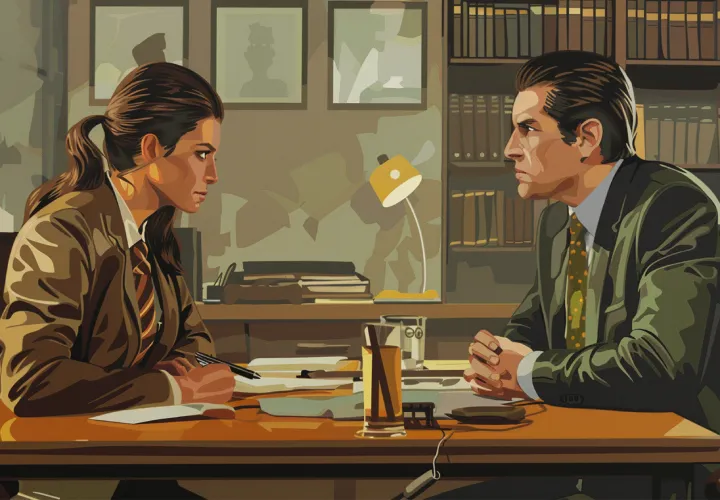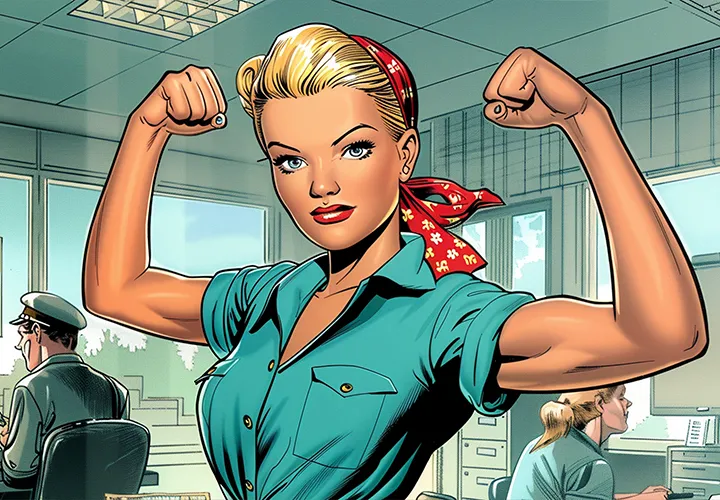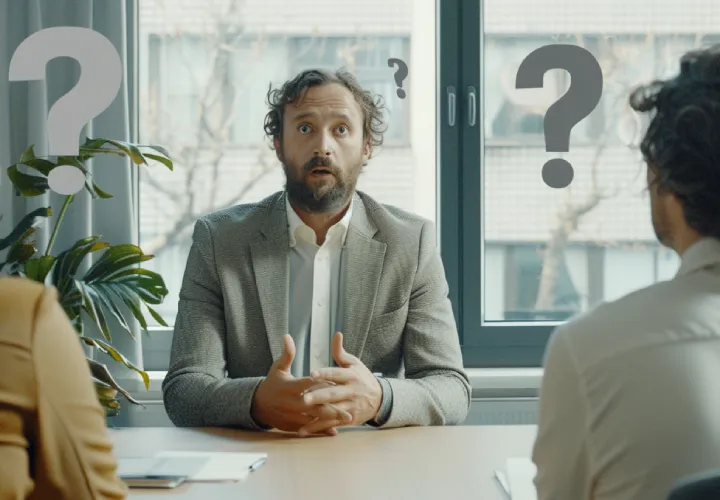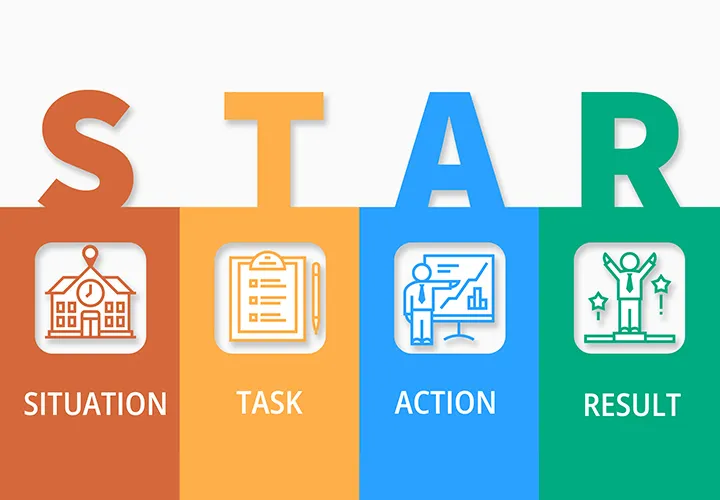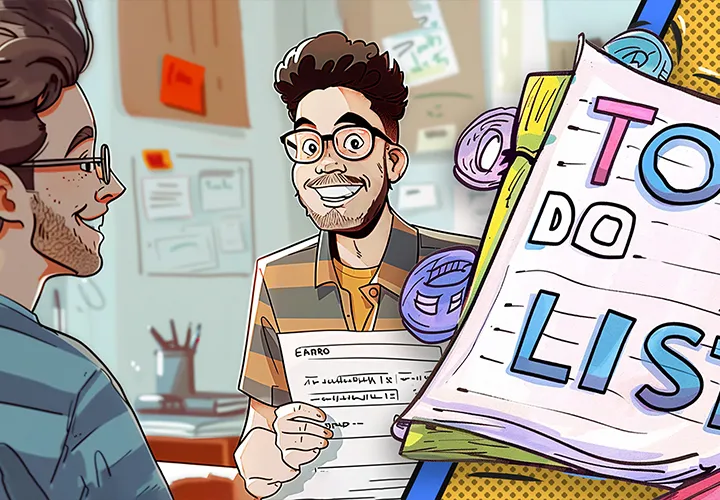Job interview: Common questions, examples, and answering techniques
Looking for a new job? Then you know: Your heart beats faster when you find the invitation to the job interview in your inbox. The thoughts whirl: What will they ask? How should I behave? What should I wear? Here you will find articles that prepare you for every phase of the job interview. You will learn how to answer difficult questions, present yourself confidently, and leave the right impression. From the first handshake to the last "Thank you for the interview" - we have thought of everything.
Job Interview: Well prepared is half hired
The boss is looking for you - you just have to present yourself correctly
Show yourself in your best light - we'll show you how
Job Interview: The Final Step to the Job
An average employee changes jobs 5-7 times today. A successful application photo and a first-class application alone are not enough to get the job. The professional application documents are only the ticket to a personal meeting. If the employer is convinced by your application, he invites you to the interview - and it is only there that it will be decided if you really fit into the company. Statistics show that for a successful application, usually 4-6 interviews are necessary. For new professionals, this number may be even higher.
The job interview is right before the contract signing. At this point, you have already successfully passed the initial selection through your application documents. The personal impression in the interview determines your professional career.
Our comprehensive collection of materials provides systematic guidelines for interview preparation. You will find practical tips on dealing with various types of questions - from self-assessment to professional skills to motivation. The articles cover basic aspects and advanced techniques.
By preparing thoroughly, you increase your chances of success. We support you with concrete strategies and practical tips for each phase of the job interview.
Your Preparation Steps → How to Prepare
A thorough preparation is divided into several phases. The first phase starts with the analysis of yourself: What professional achievements have you reached? What skills distinguish you? Where are your development potentials? This self-assessment forms the basis for convincing answers in the interview.
The second phase includes researching the company. Gather information about:
- Products and services
- Current projects and developments
- Corporate culture and values
- Market position and competitors
The third phase comprises document preparation:
- Current resume
- Certificates and diplomas
- Work samples or portfolio
- Notes on your achievements and projects
The fourth phase focuses on practical exercises:
- Formulating concise answers
- Practicing in front of the mirror or with friends
- Recording and analyzing your own presentation
- Simulating typical interview situations
Strategy for your Job Interview
"Strategy? I am confident enough!" - you're thinking now, while sitting comfortably at home. Wait until you're in the HR manager's office. Your heart beats faster, your fingers get cold, your palms get sweaty. Especially if the job promises a 30% higher pay. At that moment, your composure is gone. Without a clear strategy for tricky questions, you'll just stutter. You need a plan: How do you start? How do you get out of difficult situations?
Don't forget: A job interview also tests your reactions. The interviewer observes how you behave in pleasant and unpleasant situations. Stay dignified in every situation, smile, bring in appropriate humor. Behave as if you were among friends - in a place where you are welcomed. Your positive attitude and energy transfer. People psychologically prefer to work with strong personalities. Show your future employer that you are strong and confident!
For a successful performance, use proven methods:
For convincing answers, use the STAR method:
- Situation: Briefly describe the context
- Task: Explain the specific task
- Action: Describe your approach
- Result: Present the achieved result
For critical questions, apply the Aikido principle:
- Take the question positively
- Connect it with your strengths
- Skilfully redirect to the desired topic
- Remain authentic
Your body language sends strong signals. A firm handshake, an upright posture, and eye contact show confidence. A natural smile creates a pleasant conversation atmosphere.
Stress is part of the job interview. Deep breathing helps with nervousness. Good preparation gives you confidence. Think positively and remain authentic.
At the end, take the opportunity to ask your own questions. Show your interest in the position. Inquire about the next steps in the application process. A positive conclusion to the interview will be memorable.
The job interview - not the day of your downfall
The most common questions in a job interview
Recruiters structure job interviews according to specific topics. Here are the main categories:
Questions about your skills aim at practical experiences. The employer assesses your hard skills - the specific expertise required for the position. Your soft skills such as communication and teamwork play a significant role. You discuss your project management experiences. Your problem-solving strategies are also evaluated.
In the area of motivation and goals, the employer wants to understand why you are interested in the position. They assess your knowledge about the company. Your ideas about your own development are important. Your professional goals are also discussed.
When it comes to questions about teamwork, it focuses on your collaboration experiences. The employer wants to understand your preferred working style. You talk about successful team projects. Your approach to handling conflicts within a team is also discussed.
Expectations for the job include your thoughts on the daily work routine. The employer inquires about your salary expectations. Your preferences for working hours and home-office are also addressed. You discuss your desires for professional development.
The question about strengths and weaknesses arises in almost every interview. The employer is interested in specific examples of strengths. For weaknesses, you demonstrate your capacity for improvement. You honestly discuss areas for development. It is important to remain positive and solution-oriented.
For all the mentioned topics, you can find separate articles on our portal. Read them carefully - they will show you how to best answer these questions and which responses you should avoid. This preparation will make you more confident in the conversation.
The typical interview process
Your job interview follows a specific pattern. Knowing this pattern increases your confidence. Here, you will learn what happens in each phase and how to behave accordingly.
The greeting
Before the actual interview begins, your evaluation starts. Punctuality, neat appearance, firm handshake, upright posture, natural smile, eye contact - often, the course of the conversation is determined in the first few seconds.
Small Talk
The recruiter starts with light conversation. They ask about your journey, whether you found a parking spot, if you know the area, or how the traffic was today. This phase is more important than many think. You showcase your social skills here. Stay friendly and natural. Do not answer too briefly, but also do not digress. Perfect are short additions or counter questions like "Yes, the journey was good. Your directions were very helpful" or "The area is new to me. Have you been working here for long?".
Small Talk is an art in itself. In our comprehensive article "Small Talk in Job Interviews," you will find more examples and techniques for this crucial phase.
The main part
Now you present yourself and your background. The recruiter systematically assesses your professional qualifications, soft skills, and personality. They want to understand your motivation for the position and learn more about your specific work experiences.
Your active role The conversation is not a one-way street. Asking good questions demonstrates your interest and competence. During project descriptions, feel free to inquire directly. When it comes to team topics, show your interest in collaboration. In technical matters, demonstrate your expertise through targeted questions.
Strategic topics like development opportunities, next steps in the application process, or salary belong at the end of the conversation. This is where you demonstrate your professional sense for the right moment.
The closing
The end of the conversation is like exiting the stage - brief and professional. Thank the interviewer for the conversation, ask your final important questions, and then say goodbye promptly. Remember: You are still an applicant; the recruiters have a busy schedule. Everything important has been discussed. Leaving a good last impression also means showing the right sense of timing. Stand up, bid farewell politely, and confidently leave the office.
Job Interview: Your chance to find the right job - their chance to find the right employee
Don't be afraid of job interviews - but also do not jump at every job. You spend a significant portion of your life at work. The choice of the right workplace can make you happy or unhappy. Therefore, a job interview is not just the company's opportunity to get to know you. It is also your chance to understand where your path leads.
Something important, dear friend: Prepare thoroughly. When dealing with a reputable company, they have studied your experience, your documents, and your career path before the interview. They have prepared questions and assigned a recruiter for you. They invest time in you before you have done anything for them. Think about it.
Therefore, show respect. If you decide to commit your energy and time to a company, then inform yourself comprehensively. Learn about their history and corporate culture. Understand their products and services. Learn more about their target audience and customers. Go to them, have a convincing conversation, and make sure that they don't want you - but you want them.

